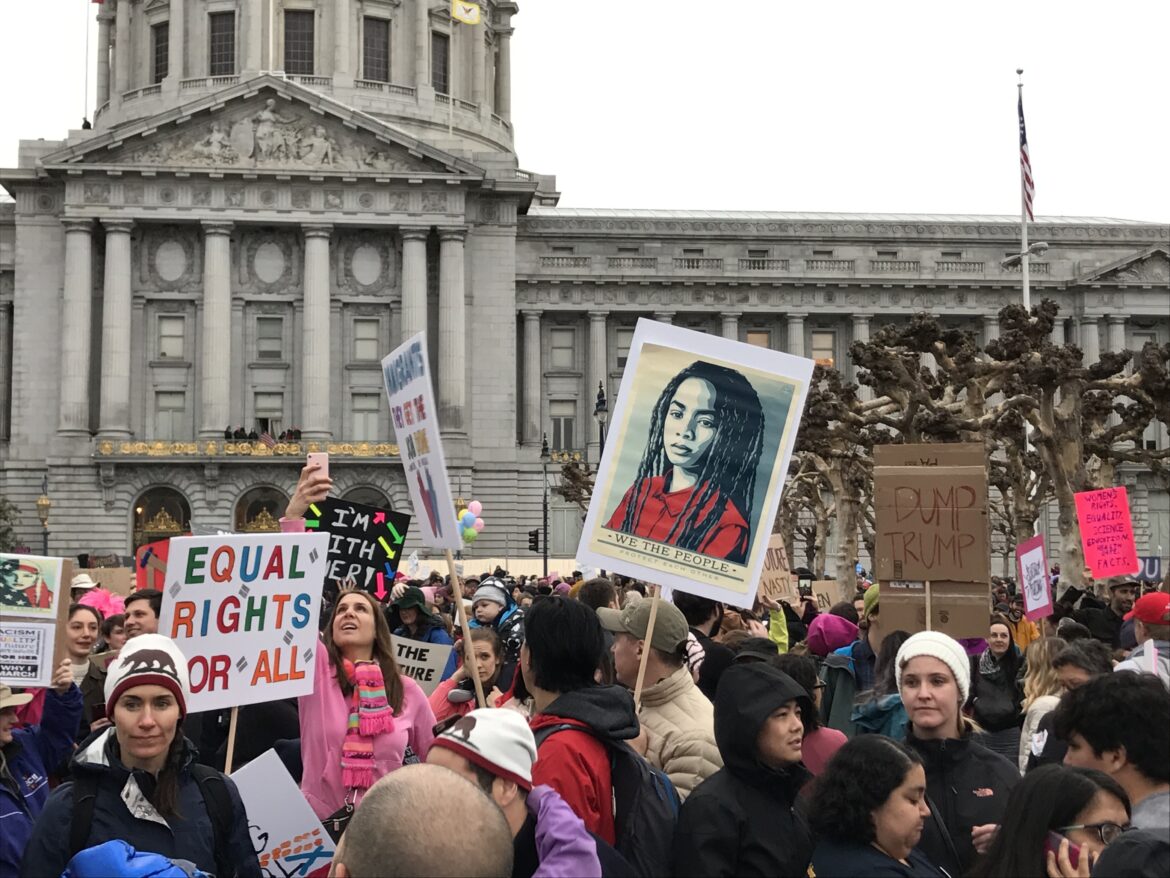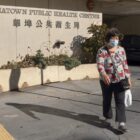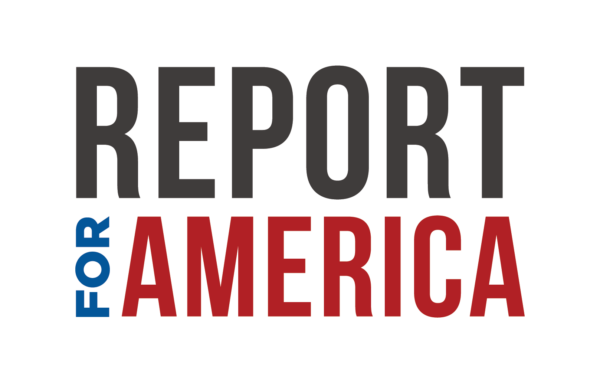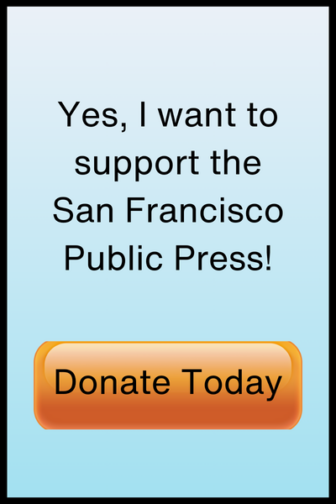See our November 2024 SF Voter Guide for a nonpartisan analysis of measures on the San Francisco ballot, for the election occurring Nov. 5, 2024. The following measure is on that ballot.
Proposition O would strengthen access to abortion and reproductive care in San Francisco and protect the privacy of patients and health care providers.
Listen to a summary of what this ballot measure would do.
Support
States across the country continue to ban abortions, limit reproductive health care and try to control and punish women for the choices they make about their bodies. Proposition O’s proponents say it would strengthen local health services in San Francisco, and the privacy of the women seeking them, even if they came from out of state.
Mayor London Breed, who co-authored Proposition O with San Francisco Reproductive Freedom Act organizers, stood alongside allies at Planned Parenthood’s San Francisco facility at a June news conference to announce the measure.
Kimberly Ellis, director of the city’s Department on the Status of Women, said the measure was an example of “proactively contingency planning,” given the prospect of a Donald Trump and J.D. Vance administration. Both politicians have voiced support for a national abortion ban.
“We are battening down the hatches,” Ellis said. “Because if there’s one thing we have learned from the pandemic, and from the fall of Roe v. Wade, it is that this is not a drill.”
Among the measure’s endorsers are California Sen. Scott Weiner, Lt. Gov. Eleni Kounalakis, and U.S. representatives Nancy Pelosi and Kevin Mullin.
Sign up for our free weekly newsletter for reporting on local politics in San Francisco.
What it would do
Proposition O would create the Reproductive Freedom Fund to pay for reproductive care in case the federal government rescinded Title X of the Public Health Service Act, which provides those services at reduced or no cost to low-income people.
The San Francisco Department of Public Health would create a website listing facilities that offer full reproductive health care. The list would include two crisis pregnancy centers and describe them as offering “limited services.”
Crisis pregnancy centers, run by anti-abortion activists, aim to dissuade women from having abortions. The majority are not staffed by licensed medical professionals, as KQED reported in Napa. Some pretend to offer full reproductive health care services to deceive women into going through with unwanted pregnancies, according to the investigative podcast “Reveal.” The dishonesty of such facilities spurred California Attorney General Rob Bonta to issue a consumer alert about them in 2022.
In an attempt to address this pattern of deceptiveness, Proposition O would authorize the city’s health department to post signs outside two local centers stating that they do not provide abortions or emergency contraception, and describing where to get those services.
Proposition O would forbid crisis pregnancy centers, which often are not bound by patient privacy laws, from sharing individual and health provider information with states that have outlawed abortions, as several have attempted to prosecute people for terminating pregnancies.
The measure would permit reproductive health clinics to expand operations above ground floors in nonresidential districts, and to corner lots in residential areas.
Opposition
In the official argument against Proposition O, Melanie Salazar, executive director of nonprofit Pro-Life San Francisco, criticized governments for “increasingly castigating” what she called pregnancy resource centers — more commonly called crisis pregnancy centers — rather than “citing negative reviews or violations of the law” at specific locations. Planned Parenthood spokesperson Christian Garcia told the San Francisco Standard that he was unaware of instances when women had entered pregnancy centers in San Francisco and been misled into thinking they were accessing abortion services.
However, at the June news conference, Breed called out the two local centers for being “very misleading,” adding that women who have entered seeking information were told “you will go to hell.”
Salazar, who called Proposition O “abortion extremism,” said the measure’s rules and Breed’s disparaging comments would discourage people from “receiving quality care” at pregnancy resource centers.
Salazar also criticized the measure for requiring signage only outside pregnancy resource centers, referring people to abortion clinics — without requiring similar signage outside clinics, referring people to the centers.
The Archdiocese of San Francisco, which oversees Roman Catholic Church activities in the city, also opposes the measure, and created a page on its website urging people to vote against it. Their opposition may surprise no one after San Francisco Archbishop Salvatore Cordileone denounced House Speaker Nancy Pelosi in May for “the grave evil she is perpetrating” by supporting abortion rights, declaring that Pelosi must be denied Holy Communion.
Cost
If passed, Proposition O would likely result in a one-time cost to the city of about $4,000 to install signs outside two pregnancy centers, with annual maintenance costs up to $8,000, according to an analysis by the city controller.
Campaign finance
As of Oct. 7, the “Yes on O” campaign committee had raised $69,691, according to data from the San Francisco Ethics Commission.
No group opposing Proposition O had reported fundraising activity to the city.
History and context
In 2022, the U.S. Supreme Court overturned Roe v. Wade, the 1973 court case that recognized abortion as a constitutional right. Since then, more than two-dozen states have banned or severely restricted abortions and women’s reproductive health care.
California voters, on the other hand, enshrined the right to abortion in the state’s constitution following the court’s ruling.
Dr. Nicole Barnett, the chief operating officer of Planned Parenthood Northern California, told the San Francisco Examiner that San Francisco is an increasingly popular destination for women seeking care they can no longer get in their home states, with 1,410 abortions performed between July 2022 and June 2023.
Nearly 1 in 5 patients across the country traveled out of state for abortion services in 2023, according to the Guttmacher Institute, a national nonprofit that supports abortion rights. California has seen abortions increase an estimated 17% since 2020.
If passed, Proposition O could be vulnerable to legal challenges, the San Francisco Standard reported. In 2018, the U.S. Supreme Court struck down a similar California law, which required crisis pregnancy centers to post information about available abortion and contraceptive services and to disclose whether their clinics had medical licenses. The court found that the law violated the centers’ First Amendment rights to free speech.
Proposition O differs from the state law in that it would direct City Hall workers, rather than the clinics, to post the signs.
Votes needed to pass
Proposition O requires a simple majority of “yes” votes to pass.
Click here to return to our full voter guide.










